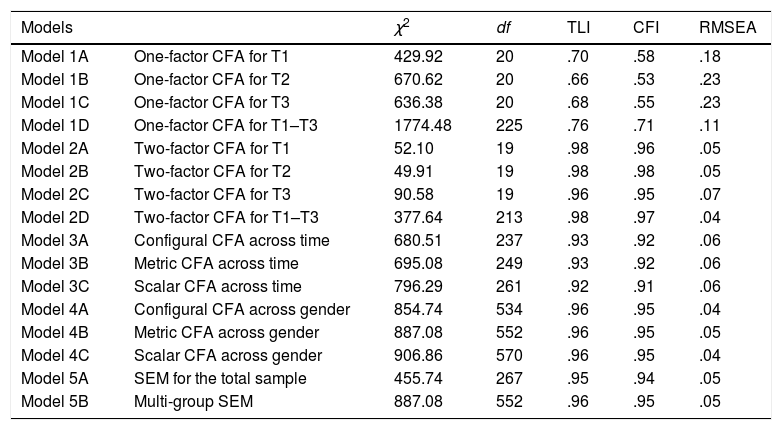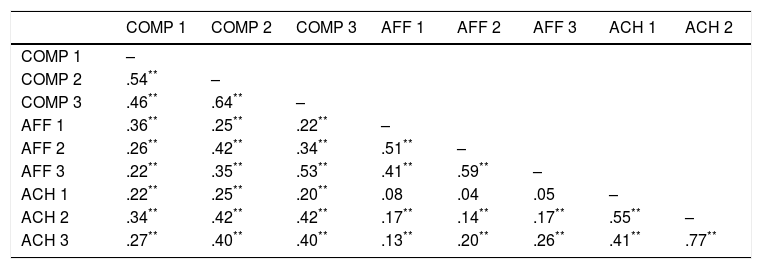In self-concept research, there is a dearth of longitudinal studies which examine whether the structure of the two-factor self-concept consisting of competence and affect is stable across time. Using data collected among 608 (male=294, females=313, one missing gender information) Chinese secondary students from 7th grade (Mage=13.41, SD=1.35) to 9th grade, our study used confirmatory factor analyses to compare the internal structure of separating and conflating competence and affect of the general school self-concept. The structural equation modeling (SEM) was then applied to examine longitudinal relations between competence, affect, and academic achievement. Consistently across the three time points, the two-factor self-concept structure was favored. However, SEM showed that the reciprocal effects were obtained only between competence and achievement from grade 7 to 8 but not from grade 8 to 9 and not between affect and achievement. Such inconsistency could be attributed to the transition from pre-puberty to adolescence.
En la investigación del autoconcepto, hay escasos estudios longitudinales que examinen si la estructura del autoconcepto de dos factores relacionados con competencia y afecto es estable a lo largo del tiempo. En base a los datos recopilados entre 608 (hombres=294, mujeres=313, 1 información de género faltante) participantes chinos de educación secundaria desde 7° grado (Medad=13.41, DT=1.35) hasta 9° grado, el estudio utiliza análisis factoriales confirmatorios para comparar la estructura interna del autoconcepto académico general separando y combinando competencia y afecto. El modelo de ecuaciones estructurales (SEM) se aplica para examinar las relaciones longitudinales entre competencia, afecto y rendimiento académico. Consistentemente en los tres puntos temporales, se favorece la estructura del autoconcepto de dos factores. Sin embargo, la SEM muestra que los efectos recíprocos se obtienen solo entre la competencia y el logro del grado 7° al 8°, pero no del grado 8° al 9° y no entre el efecto y el logro. Dicha inconsistencia se puede atribuir a la transición de la pubertad a la adolescencia.












